Squanderers' second record, Skantagio, is a testament to compositions that leave considerable room for breath and a piqued curiosity regarding the process itself.
During multiple listening sessions, I was absorbed in the sound, tended to light household tasks, and felt extraordinarily calm. Calm because when three electric guitarists (one of those on bass guitar) are the sole players, the resulting sonics are not always the stuff of peace and tranquility. Neither is Skantagio, exactly.
Are you familiar with music crafted to assist with anxiety, perhaps even to complement melatonin? There's science and several millennia of compositions validating music's role in evoking trances or lucid dreaming or the real deal of a good forty winks. Skantagio kept me upright and attentive but unconcerned about time's passing and very "locked in" without the aid and abetting of nature's finest or even chamomile tea.
David Grubbs (Squirrel Bait, Gastr del Sol, an array of solo albums and collaborations), Wendy Eisenberg (they have records on Tzadik and are a third of Editrix and more), and the legendary Kramer (surely he's a household name for music nuts) carved some space in the misty mountains of western North Carolina and in a single recording session unconsciously affirmed friendship jibes with the common goal of creating for the sake of creating.
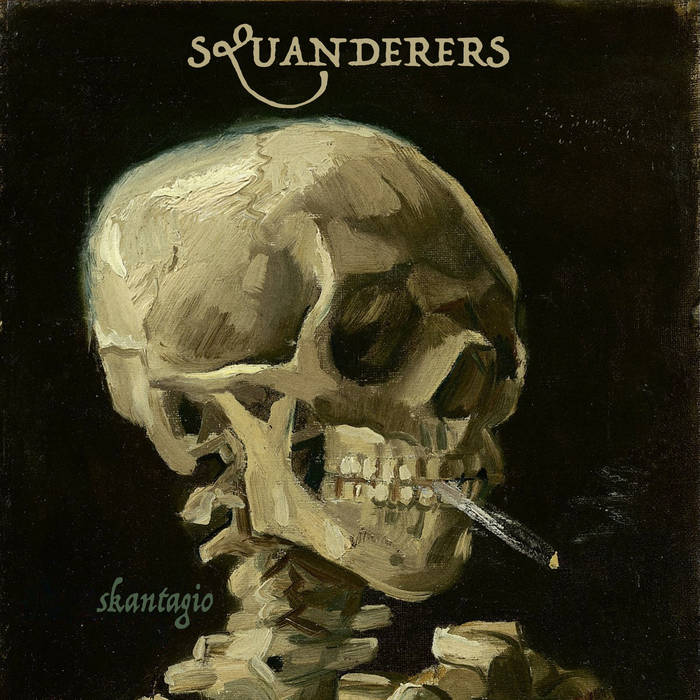
Steven Garnett: Typing to you, sitting upright and attentive, and listening to Skantagio with speakers equidistant, all three musicians are indeed conspiring in presumed keeping with your press kit query, "How do time and space conspire to create a sound?" Were you in the same physical space during recording?
David Grubbs: Yes, we were in a room that would have been small enough for us to high-five one another if we'd chosen to do so. Particularly starting with the pandemic, like a lot of musicians, I've made records long-distance; it felt great to be in the same country, the same state, the same city, the same zip code, the same room, and playing at the same time. Bizarre idea.
Garnett: With repeated listens, my thoughts go in many directions, though I don't consider this album unnecessarily cerebral and in no way incongruous. I was reminded of your first Squanderers release If a Body Meet a Body. I gotta know: Is this entirely improvised? Am I hearing only guitars and bass?
David: Yes, it's a document of our first time playing together: two electric guitars and an electric bass. If a Body Meet a Body was also recorded on the same day. If a Body is us after we set up first thing in the morning, uncertain what would flow from the new trio. Skantagio consists of recordings from after a heavy lunch, with us satiated and also feeling good about what was in the process of unfolding socially and musically.
Garnett: Please tell me how this was recorded. I'm not enough of a gearhead to push further than to compliment you. The record is lovingly crafted.
Grubbs: There are no overdubs; everything is a real-time improvisation. I've worked with the recording engineer Mitch Rackin for years, and Kramer did us the incredible service of his gorgeous mix. That's a lot of what you're hearing.
Garnett: What is Skantagio?
Grubbs: "Skantagio" is an ancient Greek term for a sounding lead to measure depth in water. It came up in a conversation that I had with Tony Conrad in his research for a book of his that will appear posthumously in 2026 called What Music Did.
Garnett: Wendy, your playing on Bill Orcutt's Music for Four Guitars affirmed my love for the instrument and the probability that it will endure. Branca and "the American heartland" or a long-haired Aaron Copland came to mind on that record. I'd like to know more about your approaches as a soloist and group member.
Wendy Eisenberg: I like to approach the guitar as a semiotic register of (I guess) post-western culture, in the sense that the musical languages of the last half century at least seem to have something to do with the singularity of that instrument. Since it has no official pedagogy, two ways to learn guitar are to either mimic some guitar hero of yours, or to completely reconceive the instrument, much the way major composers in the middle of the last century had to deal with the fact of the piano. The "mimicking" approach is as revealing as a nose-to-tail reconfiguration, because it's about what players you choose to literally feel like—you embody some physicality, literalizing history.
When I play with Bill, I play his reconception of the instrument, which, in his sense of gesture, is deeply and classically "American" feeling to me in its propulsion, deep feeling, and rebelliousness. When I play in Squanderers, I'm closer to the "reconceiving" side of learning the instrument, because I'm trying to sound the lead, to measure depth in water.
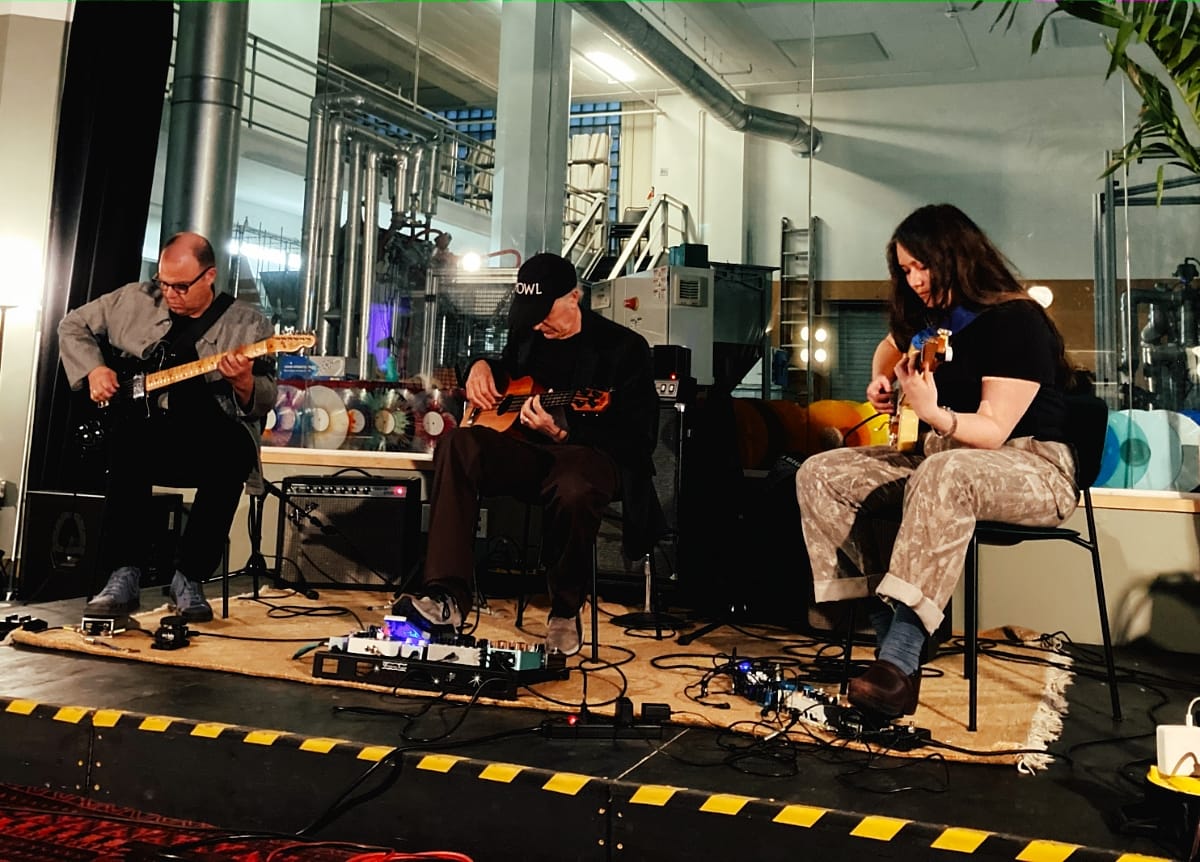
Garnett: What do you each say regarding the guitar, where you have and will take the instrument, and collaborating as Squanderers?
Grubbs: Squandering for me feels effortless. Then I need to tamp down my own suspicions and second thoughts about effortlessness. I think the process is good for me, not to mention the fact that I'm fond of the musical results.
Eisenberg: "Squandering" also means allowing something to be lost. In this band, I feel like I get to get lost, which is kind of inherently an effortless process. The best stuff comes out when you're lost. I'm just rephrasing David.
Garnett: Kramer, you address the cycle of cicadas (in the press kit and with an accompanying video) seemingly emphasizing the empirical about an insect with peculiar patterns. I'd posit its actions are divinely appointed or at least intelligently designed behaviors—cicadas are sort of underknown. They're earthy, literally. In the "organic" sense is how I hear this album. Is your understanding of cicadas a thematic bedrock?
Kramer: Not at all. The music was created free of any concept or plan. But it certainly works as a metaphor that connects the cover art to the music. The idea for the video came to me as my work in creating the videos for each of the three 'singles' was about to begin. There is no single conceptual bedrock holding these recordings up. Quite the contrary. My work with David and Wendy constitutes an open flow of ideas and spontaneous inspirations, like an underwater river whose ever-shifting currents feed the growth of the soils above, and all that sprouts from it. Its roots can shoot straight upward, or spread out so far that its point of origin becomes impossible to locate. It is this particular species of QUIET art that I am endeavoring to explore with Squanderers, and seeing/hearing where David & Wendy take it is always a revelation to me. It breeds one new idea after another, and one cannot ask for more in a collaborative trio.
As regards the cicadas, living in the Appalachian Rainforest of Western North Carolina brought me face to face with those strange creatures and fueled the idea behind the video, but the music came first (as always), long before any connection to intricately timed life cycles came to mind. The album design and so-called 'concept' almost always come to me as a RESULT of the music. There is never a 'master plan.'
Garnett: With Skantagio, I hear a retreat from volume and a rejection of chaos—by which I mean forced factions and disorder—and thus this LP is for me quite enchanting. Skantagio alludes to feelings felt pre-postmodernism. Enchantment like Narnia rather than watching it all burn. To me, this may be the softest-spoken "thanks, but no thanks" to the splintery expectations of our wired America. I wish this were the soundtrack to a daydream nation; would this were created as a pushback to the Machine. Maybe it's both.
Grubbs: Thanks kindly.
Eisenberg: Watching things burn can be a silent enchantment. Grief and protest can move in small, innumerable ways. It's nice to hear that our sounds, oriented away from the attention economy as they are, are able to be read as the protest they are.
Garnett: David, I wasn't surprised to recently read (in Levi Dayan's Unknown Rhythms) of your roles in academia and critical theory's role in your creative and professional worlds. I was most taken with your collaborations with friends, how you addressed friendship within the creative process. What Socrates and Plato wrote about. I gather also that this is officially your project. What can you tell me about friendship as relates to this project?
Grubbs: I mean, why spend time making music with people whom you don't respect and don't want to spend time with? For me, from first playing music as a teenager and encouraging my oldest friend to pick up the bass to play in Squirrel Bait, it has always seemed to be about wanting to work with folks with whom you're simpatico, from whom you never cease learning, and hopefully who are also funny as hell. Squanderers checks all three of those boxes.
Garnett: I believe your album cover is Skull of a Skeleton with Burning Cigarette by van Gogh. If not, I'd like to know more about the painting and your choice to use it.
Grubbs: Correct. Kramer proposed it, and we were immediately on board.
Garnett: If yes, then any conscious choice to use the same art as on the cover of David Sedaris's' When You Are Engulfed in Flames?
Grubbs: Doh!
Check out more like this:
 The TonearmSteven Garnett
The TonearmSteven Garnett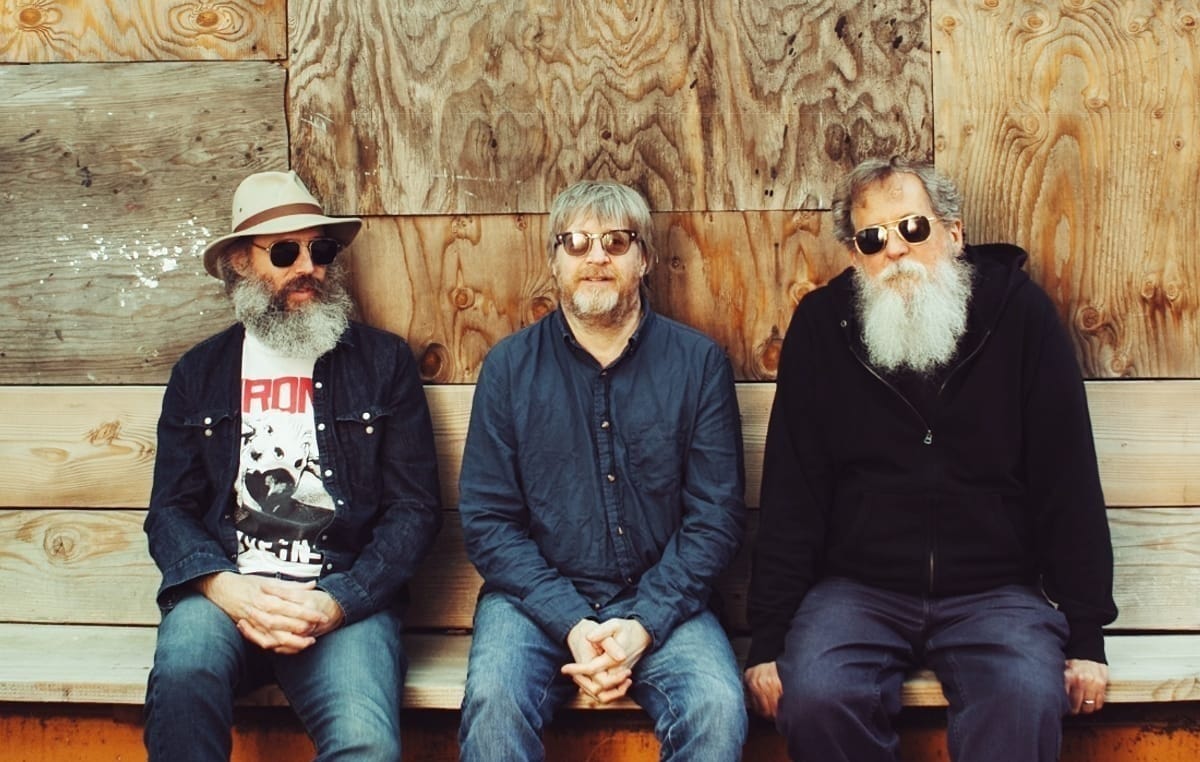
 The TonearmSam Bradley
The TonearmSam Bradley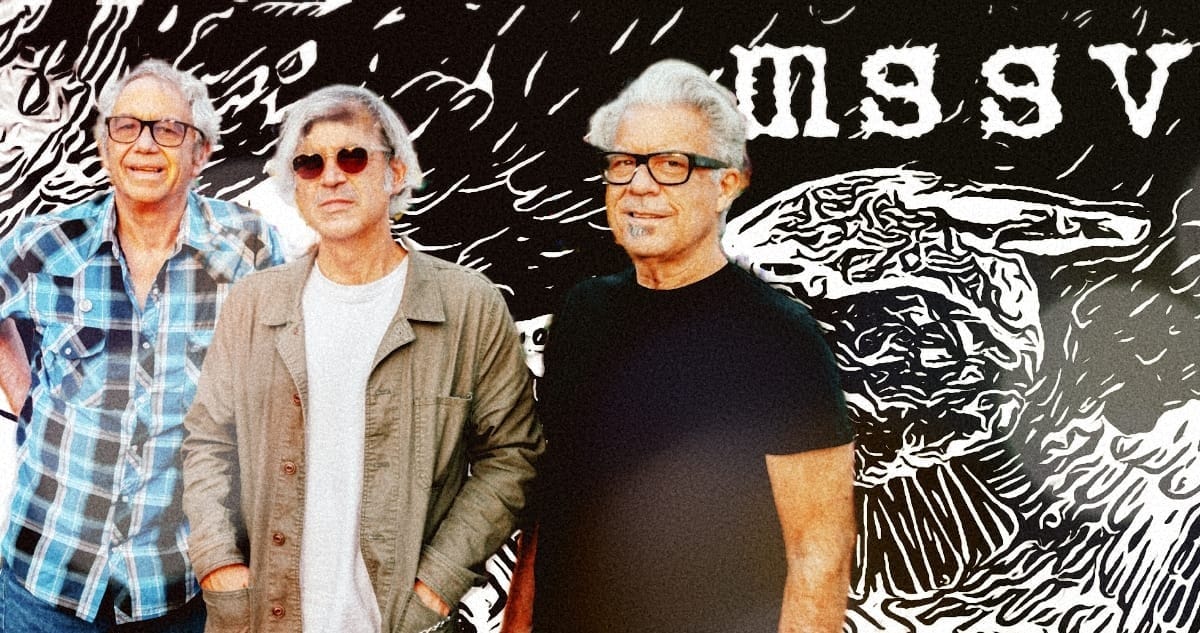


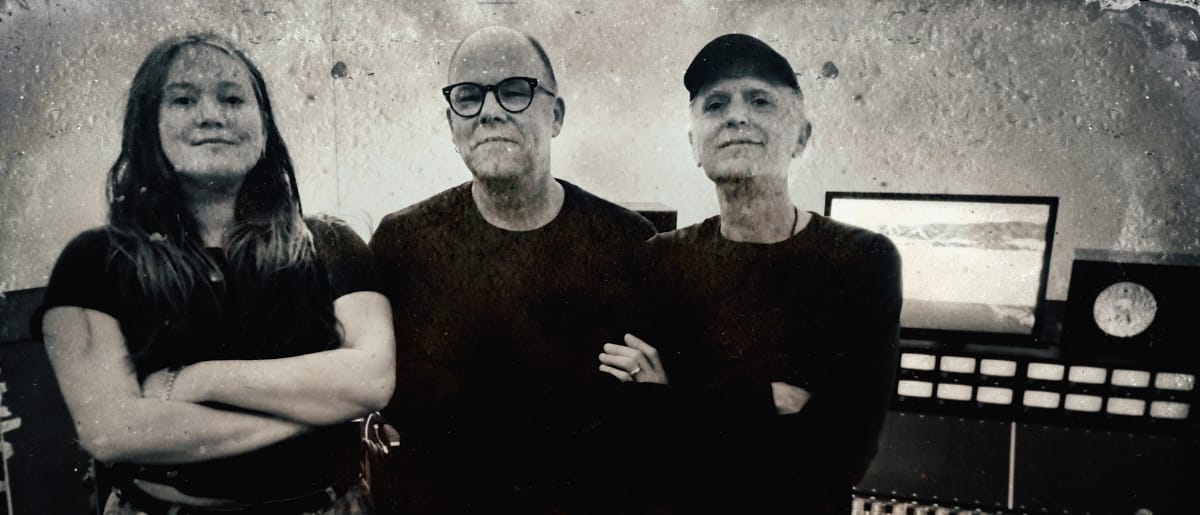
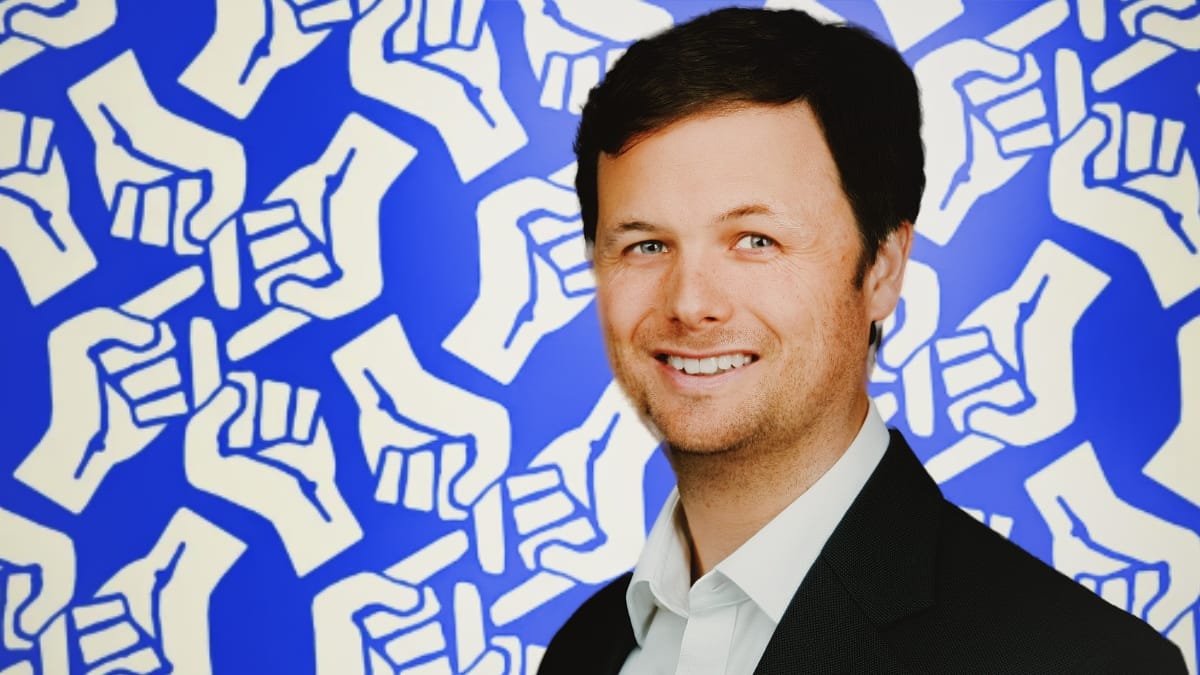

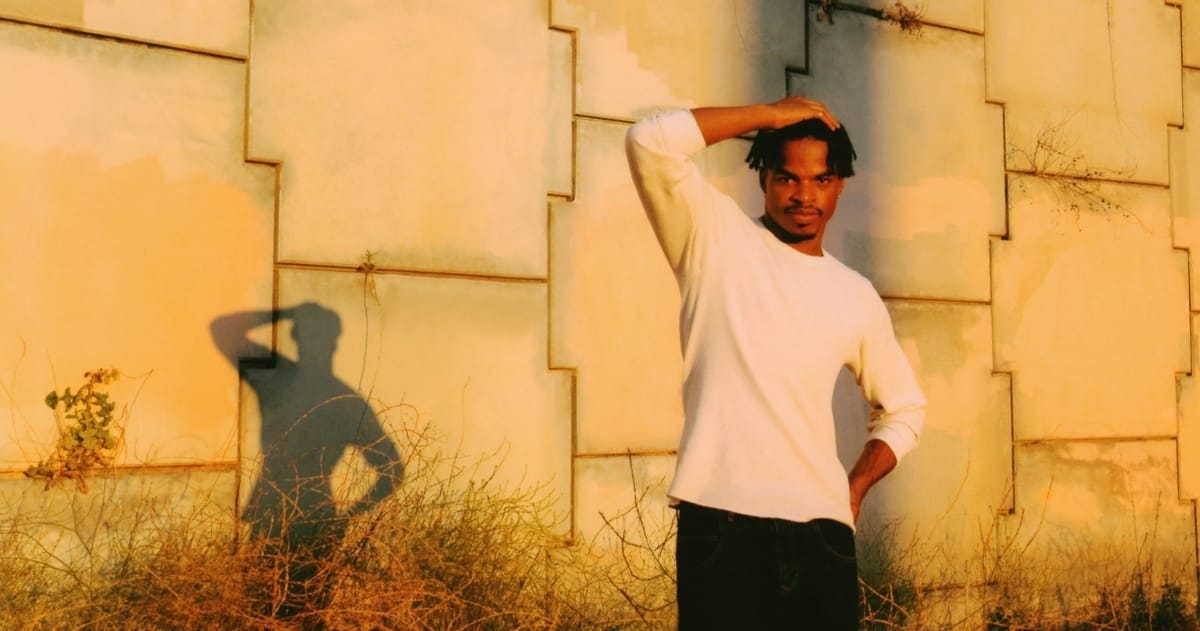
Comments